Teaching - Learning Method
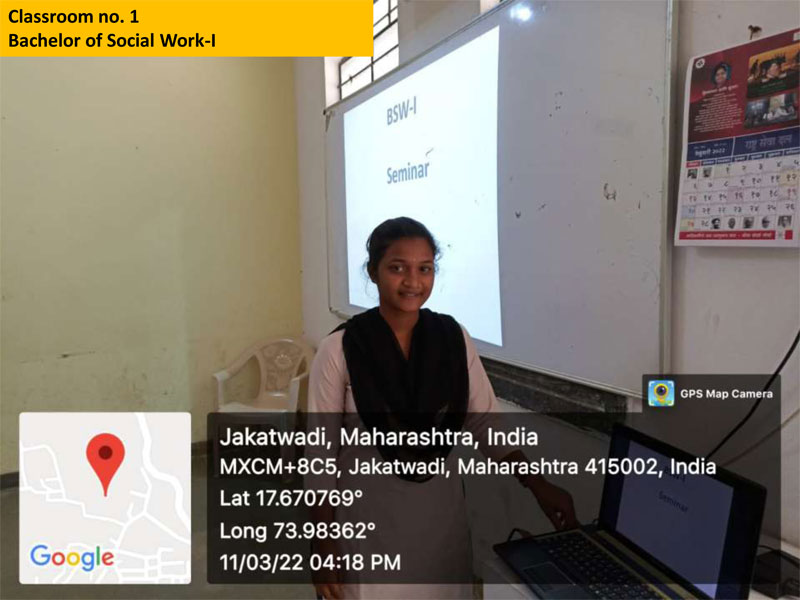
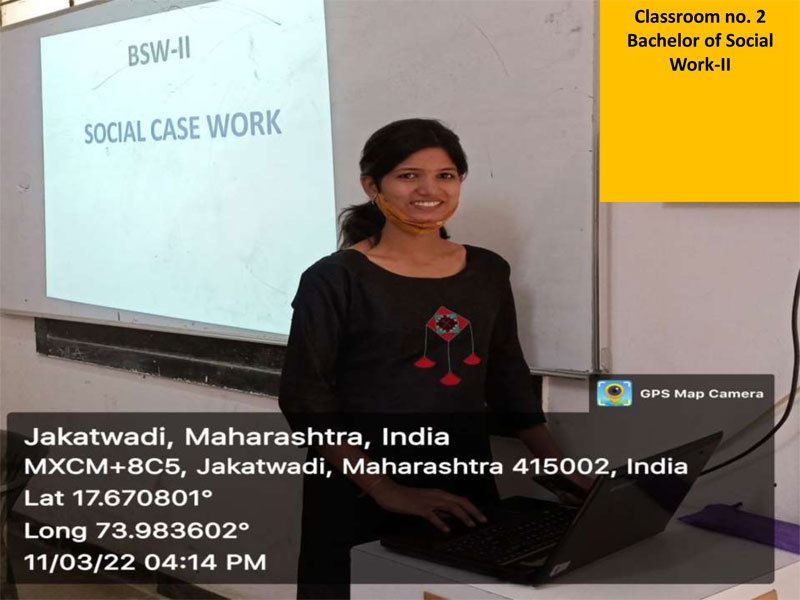
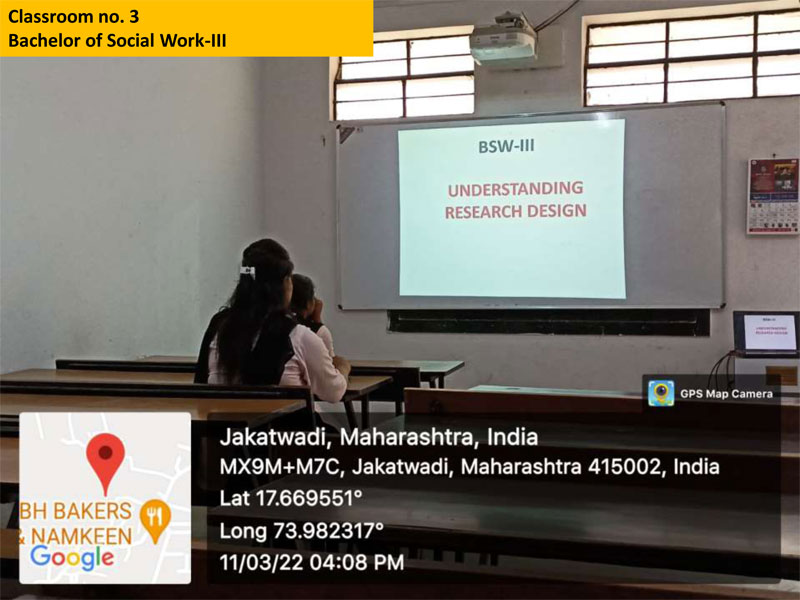
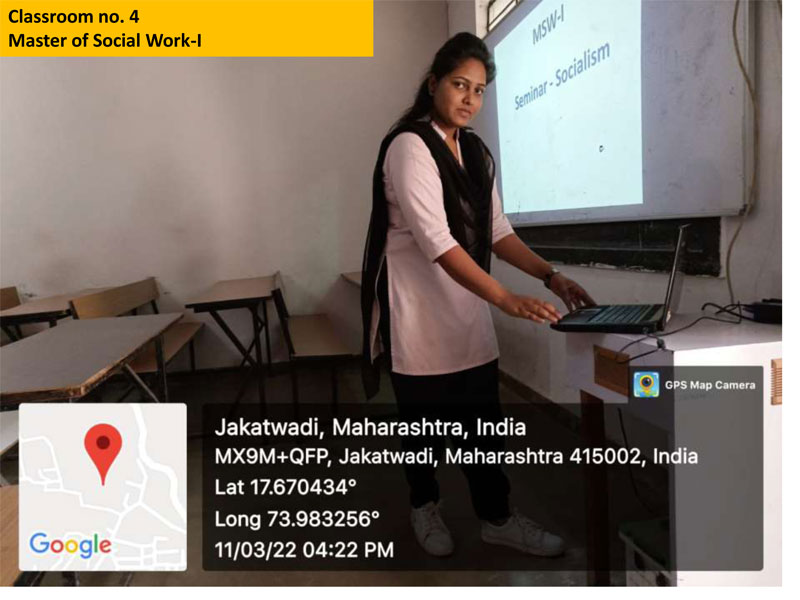
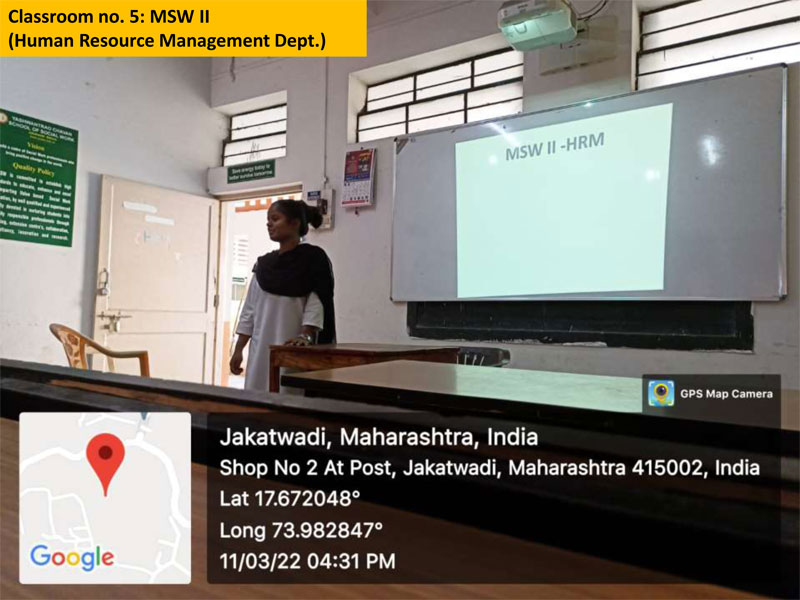
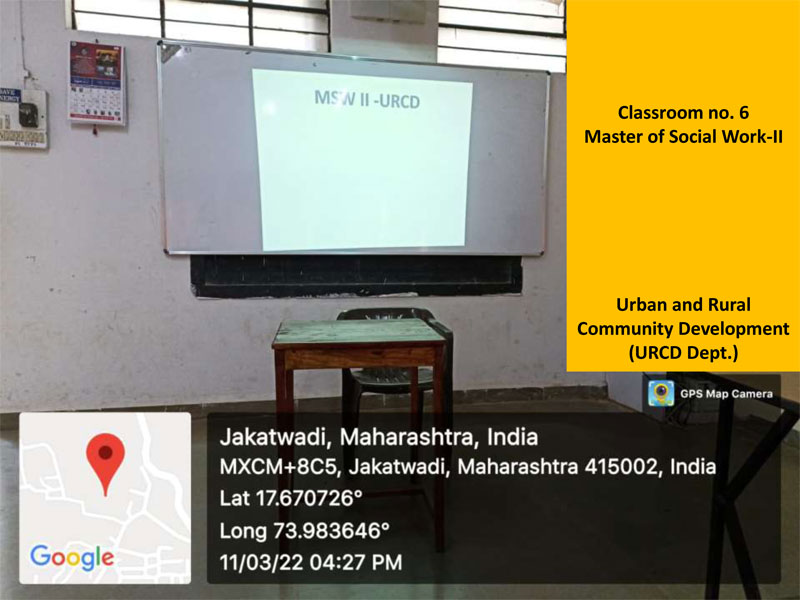
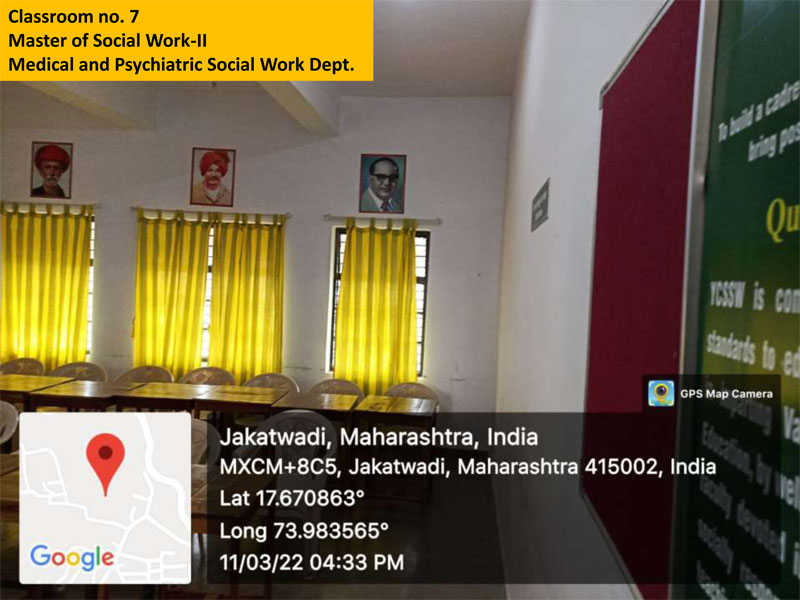
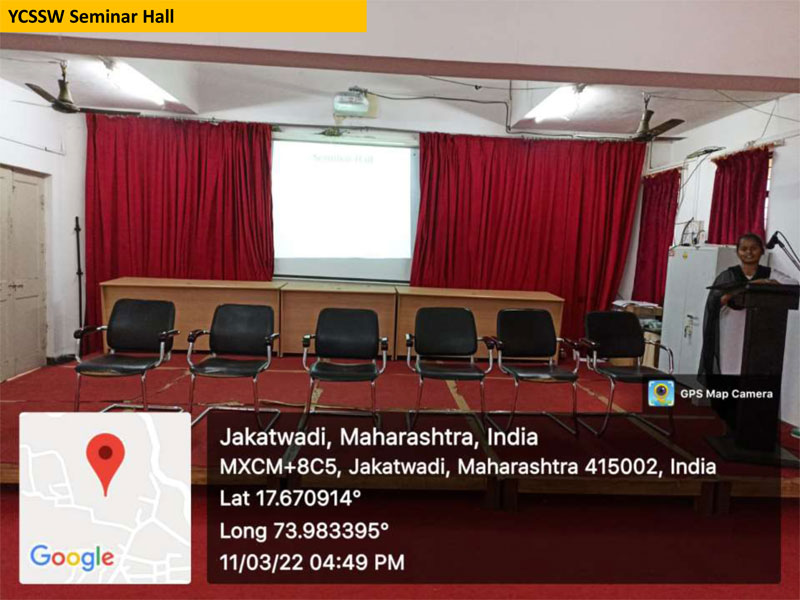
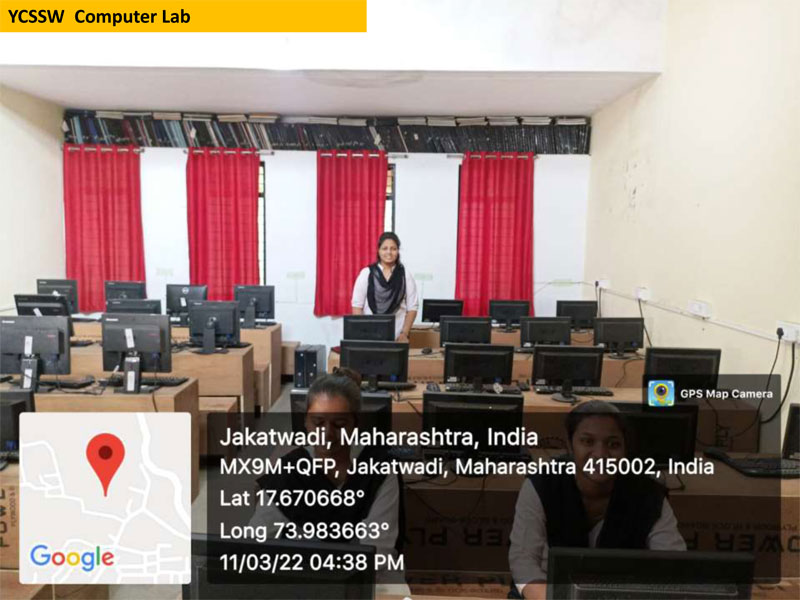
As YCSSW is the only college under Shivaji University offering BSW and MSW courses, the Institute plays a key role in Social Work curriculum design and development. YCSSW faculty members are actively involved in framing the syllabus at the University level. Syllabus revision workshops are organized on the campus, for which field experts from the industry/NGOs/hospitals/rehabilitation centers, besides subject experts from University/reputed colleges are invited. Based on their recommendations, a draft of the revised syllabus is prepared and sent to the University for Approval and incorporation. The Institute allocates adequate funds to buy books and material to make the teaching-learning process fulfilling and effective.
The Teaching Learning Process Encompasses Varied Components like:
| Concept classes | Home Assignment | Lectures | On-line studies advice support |
| Case presentations | Orientation visits | Video-assisted skills learning | Educational tours |
| Individual and Group seminar presentation | Special Seminars/workshops | Individual and group practice experience sharing | Remedial coaching for slow learners |
| Individual and group poster presentations | Independent learning | Supervised Field work placements | Educational counseling |
| Field Work conference | Interaction with renowned Social Activists | Field Work conference |
The teaching methodologies and facilities are in tune with the needs of the Social Work profession. The distinguished faculty and dedicated support staff work in tandem to achieve goals. The Institute has a systematic teaching-learning and evaluation plan. The Institute gives teachers freedom and support to use innovative methods to make teaching-learning more student-centric and to encourage interactive, collaborative and independent learning among students.
Lecture is the primary mode of teaching, supported by interactive sessions like group discussions and presentations. The different learning abilities of students are taken into account in the teaching-learning process. Learner-centric approach is taken in tandem with course objectives. ICT-enabled methodologies are adopted to equip learners to compete in a tech-savvy environment.
The lecture-cum-demonstration method is complemented by role-play, brainstorming, case studies, case presentation, games, simulation, case laws, in-basket training, field application and success stories.
The teaching and practice of Social Work methods go hand in hand. Self-study by students with guidance from teachers is encouraged. Faculty members attend workshops, seminars and training sessions and share what they learn with the students. Meditation techniques are also used to improve students’ concentration.
The below table explains the process of curriculum implementation:
Besides personal mentoring, students are encouraged to work in teams. Stress is laid on innovative strategies that involve experiential learning through research, fieldwork, case studies and project work.
Curriculum is enriched with information on latest market requirements by taking feedback from alumni, employers and students when they return from placement training. Students’ are updated through guest lectures on topics outside the syllabus.
General programme held for the holistic development of students are:
- Promotion of Moral and Ethical Values
- Prayer: Prayer teaches respect for self and others, and to be humble and honest. Hence, all faculty and students participate in the daily Morning Prayer.
- Recitation of Preamble: The Institute believes understanding the Preamble of the Constitution is essential for creating responsible citizens. Hence, the Preamble is recited every morning after prayer. A copy of the Constitution is displayed on the campus every day as part of the Jaano Apne Sanvidhaan Ko (Know Your Constitution Initiative). It can be accessed by students and visitors.
- Inculcating Values: Eminent persons are invited for lectures to sensitise the present generation on the contribution of social reformers. Students are also sent for Vipashana to inculcate moral and ethical values in them. Positive change has been observed in students completing Vipashana. Parents, too, appreciate this activity.
- For promotion of Employability and Life-skills: Programmes are conducted in association with Edubridge, Satara and Global Excellence HR, Pune to equip students for the job market and life.
Gender sensitization initiatives:
- Institute organizes gender sensitisation programmes
- Gender included as a topic for BSW students; students are working on gender equality as part of Society Empowerment Activity
- MoU with Pune-based Samyak, which works on gender equality
- Institute plans participation in One Billion Rising campaign.
Initiatives to foster inclusion:
- Institute has inclusive policy in staff recruitment, student enrolment
- Friendly policy for differently-abled
- Special attention given to students of socially and economically backward communities
- Unique policy of addressing everyone only by first name on campus
- Awareness programmes organized inside and outside campus
- Programmes organized for elderly
- Students work for rehabilitation of mentally ill people
Better Career Options: Success stories of alumni are used to motivate students to take up challenging assignments. Information about job openings is brought to students through networking with industries, NGOs and government officials. Alumni and potential employers inform students about career opportunities through WhatsApp, Facebook, emails, SMS and other means. The Career Guidance Cell conducts workshops and seminars to guide students.
- Community orientation: As most students at the Institute are from villages, they are aware of the problems faced by villages. Therefore, the students as well as faculty members and Management have good community orientation and work among people to eradicate casteism, superstition, farmer suicide, female infanticide, and to promote education, especially among girls. Activities for women empowerment are taken up. Students are sensitized about the environment. A national workshop on Zero-Budget Natural Farming was organized to create awareness among farmers on profitable farming.
- Premarital Course: In view of the increasing instances of divorce, suicide and domestic violence, premarital course for youth is conducted at the Institute-run FCCs.
- Training on Effective Parenting: Given the increasing number of families approaching Child Guidance Clinics (CGCs), the Institute conducts workshops on effective parenting. Pediatricians, psychologists and social workers conduct the workshops, which is open to general public.
- Capacity improvement programme arranged every month for all students on topics of contemporary importance, with focus on issues such as violence, gender and national integration. The contribution of social reformers is also discussed.
- Nationally known activists are invited to interact with students on burning issues, and motivate and sensitise them.
- Guided by faculty, students hold rallies on important occasions and days to create awareness in society. Students are trained in social action and they participate in social action movements organized by eminent NGOs and activists.
- Important days like World Mental Health Day, International Yoga Day, AIDS Day, Constitution Day, Youth Day and Women’s Day are observed with participation of students and faculty. These programmes help students learn event management. Students are given responsibilities from planning to reporting and publishing news.
- Birth and death anniversaries of eminent personalities, especially social reformers like Shahu Maharaj, Savitribai Phule, Mahatma Jotirao Phule, Babasaheb Dr B. R. Ambedkar, Chhatrapati Shivaji Maharaj, Lok Shahir Annabhau Sathe and Yashwantrao Chavan, among others, are remembered. Students are briefed about the contribution of these personalities.

